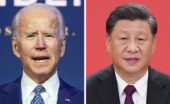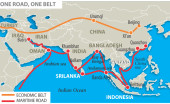Molly Minturn - My family is heartbroken to share that my father died in surgery on Monday, Feb. 10. It…
Wednesday Night #1741 in beautiful, bucolic Boucherville
Written by Diana Thebaud Nicholson // July 15, 2015 // Wednesday Nights // Comments Off on Wednesday Night #1741 in beautiful, bucolic Boucherville
Following the news that Boucherville was designated #1 on the MoneySense Best Places to Live list, John Evdokias generously suggested that he and his wife, Dominique Beauchamp, would welcome the opportunity to introduce the joys of Boucherville to Wednesday Nighters.
After much discussion, including a delightful reconnaissance visit to their charming house, we decided that Wednesday Night should not shy away from the adventure of a change of venue and that our faithful regulars who live on the South Shore should be given a break from their bridge-crossing commute. Appropriately, on Wednesday the news came that Canada ranked as ‘most admired’ country in the world: report
Canada is the “most admired” country with the “best reputation” in the world, according to an annual survey ranking the reputations of developed nations across the globe.
The 2015 report from the Reputation Institute [not, we admit, previously one of our go-to sources for news] ranked Canada as the most reputable country in the world, based on a variety of environmental, political, and economic factors.
It was with real pleasure that we welcomed our old friend Luc Sirois of Hacking Health back to Wednesday Night after a long absence. Luc introduced his father-in-law, Royal Canadian Navy Captain Jean Gagnon, who was for many years a professor of economics at the Royal Military Academy of St-Jean sur Richelieu.
Greece
Following the referendum in which the Greek people voted against the bailout offered by the eurozone, Prime Minister Alexis Tsipras is now faced with even tougher provisions for which he is trying to get approval from the Greek Parliament this Wednesday evening. The situation is confusing and will undoubtedly become more so. There has been a noticeable hardening of editorial views of Germany characterized by the numerous references to “the German Empire”. The effect of Germany’s hardline position is an increased awareness that the issue is more political than purely economic and, as the threat of weakening – if not dissolution – of the European structure, the elephant in the room is Russia. Why is Germany being such a bully? Is it a question of Protestant/Lutheran work ethic vis à vis the Mediterranean culture(s), or is it based on the fact that Greece fudged its figures when applying for membership in the eurozone and this must be punished so as not to have similar situations in the future? Today’s problems are rooted in the fundamental issue so clearly stated by Peter Berezin in his recent BCA report: “it is virtually impossible to have an effective monetary union without a functioning fiscal union. A fiscal union, however, stands at odds with the principle of national sovereignty.” A major reason why Britain is reluctant to join. The sums are so vast, there is no way that Greece will be able to pay off the debt – and it is questionable whether any of the creditors really want the money. Should the interest be forgiven? What is the interest rate? Should the principle – or a portion of it – be forgiven?
In the current debate there are two neglected foundinding principles. One, the free movement of goods enabling the member countries to export to a market of some 350 million consumers. The second – and problematic one – is the free movement of people, with all that implies in the current illegal immigration crisis.
What needs to be done to salvage the current situation and what happens if salvaging proves to be impossible? What would be the impact?
There is a global misfit today of which the problems of Greece and the EU are only one part.
Because of the short news cycle, we tend to (briefly) focus on one problem, leaving others aside until the next major development.
Although the most recent reports indicate GDP growth at 7%, skeptics wonder about the effect of the recent turmoil in the Chinese stock market and some economists question the reliability of the 7% figure. The precipitous drop in the stock market still leaves it some 40% ahead of last year’s low, but the fact that it was small investors who were hurt is a concern for the government. Others wonder about the proliferation of ghost cities, but are reminded that in China, large numbers of people can be moved as the government sees fit.
Tribalism is a great concern, whether exemplified by the rise in popularity of Donald Trump’s candidacy among Republicans in the U.S. or the Shia/Sunni divisions in the Middle East.
The Iran nuclear deal is seen by most commentators as a good thing. As Robert Fisk points out in Wednesday’s column, — America has taken Iran’s side – to the fury of Israel and Saudi Arabia and that, rather than the release of more than $100bn of Iranian assets frozen overseas, or its ability to resume selling oil on international markets and using the global financial system for trade (damaging to Saudi Arabia), it is the support of the U.S. that enrages Netanyahu and his strange bedfellows.
T H E P R O L O G U E
The nuclear deal with Iran temporarily trumps the on-going saga of the EU-Greece debt relief plan. Over the next days and weeks, there will be a stream of analysis from all quarters; in the meantime, herewith a sampling of early reactions.
Iran Nuclear Deal Concludes In Historic Announcement
Opponents of the talks in the U.S. Congress have vowed to thwart any agreement that they deem has not gone far enough to prevent an Iranian nuclear bomb. Congress now has 60 days to review the deal before President Barack Obama can start removing congressional sanctions. … The deal also has its detractors all over Iran’s neighborhood. The most outspoken of them is Israel … On Tuesday, Israeli Prime Minister Benjamin Netanyahu called the agreement “a bad mistake of historic proportions.”
In After Iran deal, the Gog and Magog war between Obama and Netanyahu begins Haaretz underlines that “Prime Minister Benjamin Netanyahu views Iran as an incorrigible Great Satan hell-bent on regional hegemony and the destruction of Israel. President Barack Obama sees Tehran as a malevolent Little Satan, but one that can still be redeemed. This – rather than the timing of sanctions, the quantity of centrifuges or the quality of inspections – is the main reason for the impending apocalyptic political war that is destined to break out between Israel and the United States now that the Iran deal has been signed.”
Al Jazeera also highlights the historic nature of the agreement in its front-page story Iran and world powers clinch historic nuclear deal, but offers cautionary reminders that it is not only a gamut of U.S. politicians of assorted philosophical stripes who oppose the deal (Iran’s conservatives wary of nuclear deal — Moderates face intense pressure from sceptics of the deal, who reject stringent terms on Iran’s nuclear programme), but also two key U.S. allies (Why Saudi Arabia and Israel oppose Iran nuclear deal).
In a thoughtful piece in The Atlantic, (The Single Most Important Question to Ask About the Iran Deal — Making sense of a morally dubious agreement that might be a practical necessity), Jeffrey Goldberg asks “Does this deal significantly reduce the chance that Iran could, in the foreseeable future … continue its nefarious activities under the protection of a nuclear umbrella? If the answer to this question is yes, then a deal, in theory, is worth supporting.”
Friend of Wednesday Night, C Uday Bhaskar, was quick off the mark on Tuesday, with a different – and refreshingly positive – perspective Here’s How Iran’s Nuke Deal Can Benefit India.
So much has been written and spoken about the Greek debt crisis that many are suffering from a surfeit of opinions, facts and fantasies. Everyone has their own preferred reference points. If you don’t read anything else, we recommend the New Statesman’s interview with Yanis Varoufakis: Exclusive: Yanis Varoufakis opens up about his five month battle to save Greece — In his first interview since resigning, Greece’s former Finance Minister says the Eurogroup is “completely and utterly” controlled by Germany, Greece was “set up” and last week’s referendum was wasted.. A worthy companion piece is Saving Greece, Saving Europe by Barry Eichengreen. Finally, Greece needs debt relief far beyond EU plans – Secret IMF report adds a new tone of desperation.
With the alarming droughts and accompanying devastating forest fires in BC and Saskatchewan , the controversy surrounding the sale of water to Nestlé for its obscenely profitable bottled water operations has now spread from California to B.C. In principle, we are opposed to the production and consumption of bottled water in countries where tap water is considered safe, and we HATE the proliferation of plastic bottles that accompanies this (to us) fad. The Guardian, as usual, gives both wide coverage of water-related news and excellent background. Of particular interest is The madness of drinking bottled water shipped halfway round the world: “the prospect of global sales hitting 233bn litres this year brings another set of fears. “The problems of waste, inequity, high economic costs and impacts on local water resources are intrinsic to the entire industry,” says Peter Gleick, president of the US-based Pacific Institute and author of Bottled and Sold: The Story Behind our Obsession with Bottled Water.” Two sides to the current BC debate: Water is a precious commodity, but B.C. is just giving it away and Nestlé May Not Be The Bad Guy It’s Portrayed As
On a brighter note, Fashion Gets Creative About the Global Water Shortage
Despite fears of losing money on new investments, water conservation has become a major industry focus.
Putting a little wine in your conversational water, don’t miss Frédéric Laurin’s opinion piece on La Presse, in which he recommends a sensible approach to denting the SAQ monopoly.
Des cavistes à la rescousse
Le modèle des camions de rue pourrait être appliqué à l’alcool et favoriser une plus grande diversité de produits
Par Frédéric Laurin, Professeur en économie à l’Université du Québec à Trois-Rivières et auteur de l’ouvrage Où sont les vins ?
Il y a plusieurs années que je suggère une libéralisation partielle du marché, qui permettrait à de petits cavistes – c’est-à-dire à de petites boutiques de vins et d’alcool – d’ouvrir leurs portes au Québec, venant faire concurrence à la SAQ. Les premiers gagnants d’un tel système seraient les consommateurs. Selon mes estimations, la concurrence amènerait une diminution des prix d’au moins 30 %. Notons que la marge bénéficiaire de la SAQ s’élève à 145 % en moyenne (par rapport au prix coûtant). Il y a donc de la place pour des baisses de prix ! Concurrence n’est PAS privatisation. Privatisation=vente de la SAQ. Concurrence=ouvrir quelques petites boutiques seulement.
Canada
It is pretty obvious that the summer doldrums are with us when the Globe & Mail publishes a news story written by TWO journalists headlined Government favours infrastructure projects to Conservative ridings – this is news?
More noteworthy is the announcement that Canada will keep sanctions against Iran despite nuclear deal – that should make Israel happy.
And on Tuesday, Stephen Harper signed a free trade agreement with Ukraine – of course, this is not politically motivated — 6 ridings where Stephen Harper’s trade deal with Ukraine gets noticed
Always good to read the thoughts of our friend Christopher Ragan: Ottawa’s fiscal policy needs to promote growth, not just avoid deficits. “It’s hard to avoid the conclusion that our “mix” of monetary and fiscal policies is off kilter, and that electoral politics is partly to blame.”
Despite the carping, let us offer a small prayer of thanks that there is no Donald Trump in our political landscape.
Random items:
Nobel winner Malala opens school for Syrian refugees – This is how she celebrated her 18th birthday. What an example!
Your technology story of the week Park Plus at Abu Dhabi airport
And finally, if you have been bothered by telemarketing calls recently, this arrived in our In box:
You may have received a phone call offering you a vacation or prize from Air Canada. Please note that this is a scam conducted in order to collect personal information for fraudulent use and that Air Canada does not engage in phone promotions.
These incidents should be reported to the Canadian Anti-Fraud Centre (CAFC) by phone or online.
Phone: 1-888-495-8501 FREE [PHONEBUSTERS]
Online: Canadian Anti-Fraud Centre
We appreciate your help in this matter.



